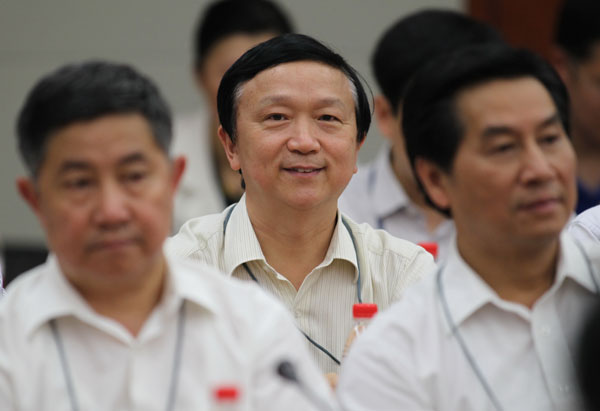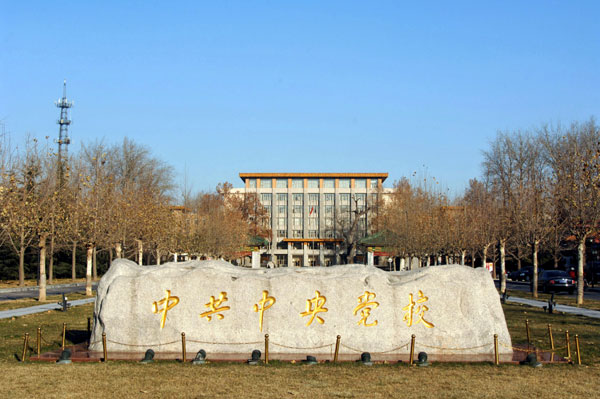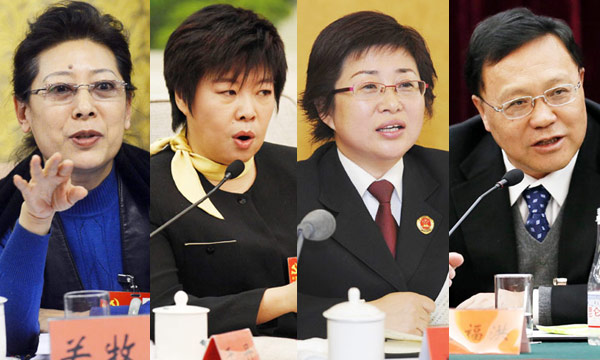Institutions open the door to scrutiny
By An Baijie (China Daily)
Updated: 2012-11-09 07:56
In common with official archives in other countries, the authorities have imposed a 30-year lock on access to extremely sensitive documents, ensuring that the events described will be historical fact rather than current issues and that many of the participants will have passed away by the time the files are opened, said Yang.
However, some documents currently classified as confidential, especially those relating to defense, diplomacy and public security, will become available over time, when such a move is deemed appropriate, he said.
The authorities at the archives have signed bilateral agreements with 14 countries, and the agency has also participated in a number of joint exhibitions with countries such as Russia, Vietnam and Singapore. Meanwhile, staff from the state archives in Pakistan and the Democratic People's Republic of Korea are also trained in Beijing, he said.
Unlocking the door
The move toward greater openness is also being encouraged in other Party agencies. The CPC Central Commission for Discipline Inspection and the Party School of the Central Committee of the CPC have started to open their doors to foreign journalists and diplomats during the past two years.
 |
|
Officials at a seminar during German Chancellor Angela Merkel's visit to the Party School in 2010. Xu Jingxing / China Daily |
 |
|
The entrance of the Party School of the CPC's Central Committee in northwest Beijing. Provided to China Daily |
The CPC's Central Commission for Discipline Inspection, the Party's main anti-corruption agency, received visits from 45 foreign diplomats in April 2011. The visits were aimed at providing the diplomats with a better understanding of China's anti-graft measures and also to promote cooperation in an international crackdown on corruption, according to Wu Yuliang, deputy secretary of the commission, in an interview with People's Daily in April last year.
More than 30 journalists, including 20 from countries such as the United States, Japan and Egypt, visited anti-graft agencies in six counties and cities in the eastern provinces of Jiangsu and Zhejiang in September 2011 to hear local officials explain their approach and experiences in coordinating anti-graft measures.
Lin Yi, the commission's deputy secretary in Wuxi, Jiangsu, said that greater transparency and approachability will help to dispel misunderstandings between China and other countries.
"We should let people overseas know that the Party is strengthening its anti-graft measures and that our anti-corruption projects are becoming more and more transparent," he said.
Meanwhile, the Party School of the CPC's Central Committee, located in northwest Beijing, took the unprecedented step of opening its doors to domestic and international media in June 2010, on the day before the 89th anniversary of the Party's foundation.
More than 60 reporters, including 42 from 24 foreign news agencies, attended the tour of the previously secretive establishment, which provides training for middle and high-ranking officials, including ministers, provincial chiefs and governors.
The reporters visited classrooms, the gym, dormitories, the cafeteria, and the guest hall, before attending a class, where training was being provided for young and middle-aged officials with the potential to hold provincial-level posts.
Chen Baosheng, vice-president of the Party School, admitted that the institution had not been particularly welcoming to foreign media in the past, but he said it planned to be more open in the years to come. "The CPC has nothing to hide, and we will communicate with anyone who wants to talk with us," he said.
The opening of the door to foreign journalists is a sign of the Party's growing confidence and maturity, according to Yin Yungong, director of the journalism and communication research institute of the Chinese Academy of Social Sciences. "It shows that the CPC is adopting an open stance as a ruling party," he said.
Related Stories
Top Party school opens up course design 2012-10-20 20:19
Education evolution of Central Party School 2012-10-19 14:25
Xi tells attendees at Party school to focus on study 2012-09-03 08:11
Party congress delegate hails power of cyberspace 2012-11-08 15:51
Sound bites from 18th Party Congress 2012-11-08 08:39
Eyes on Party congress 2012-11-08 07:58

Top News
Xi emphasizes adherence to CPC Congress spirit
Top legislator urges implementation of congress spirit
Moderately prosperous China brings chances to world
Video







